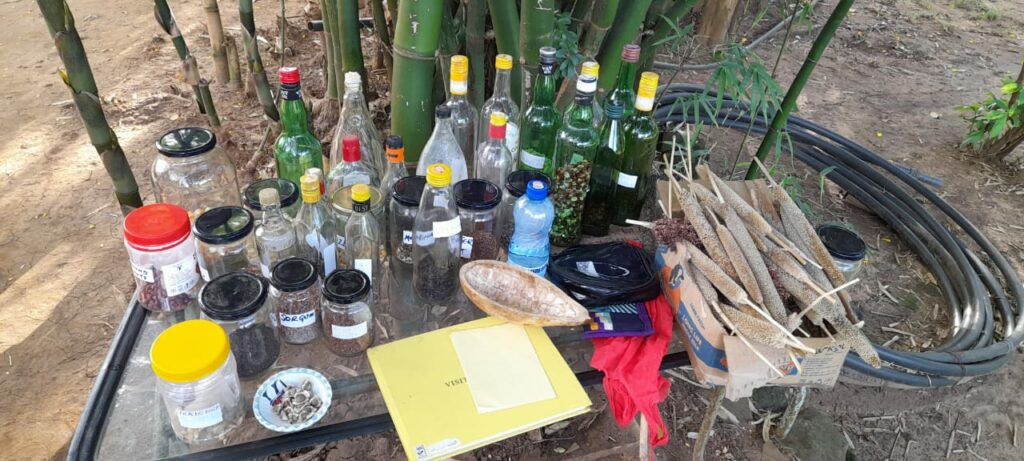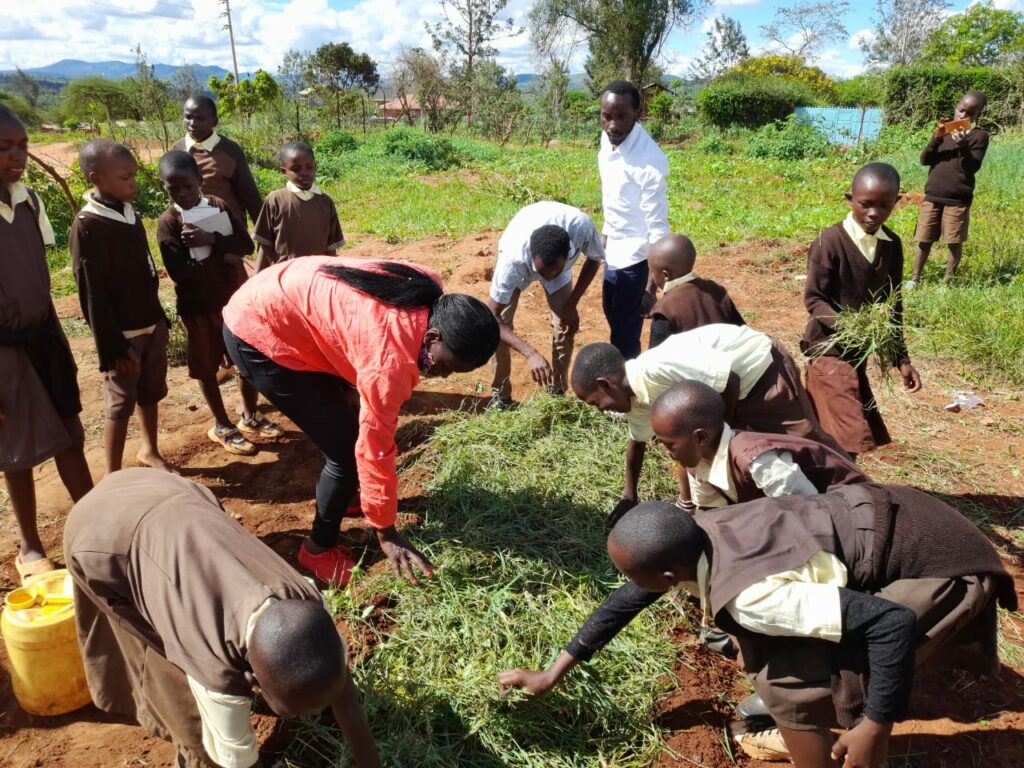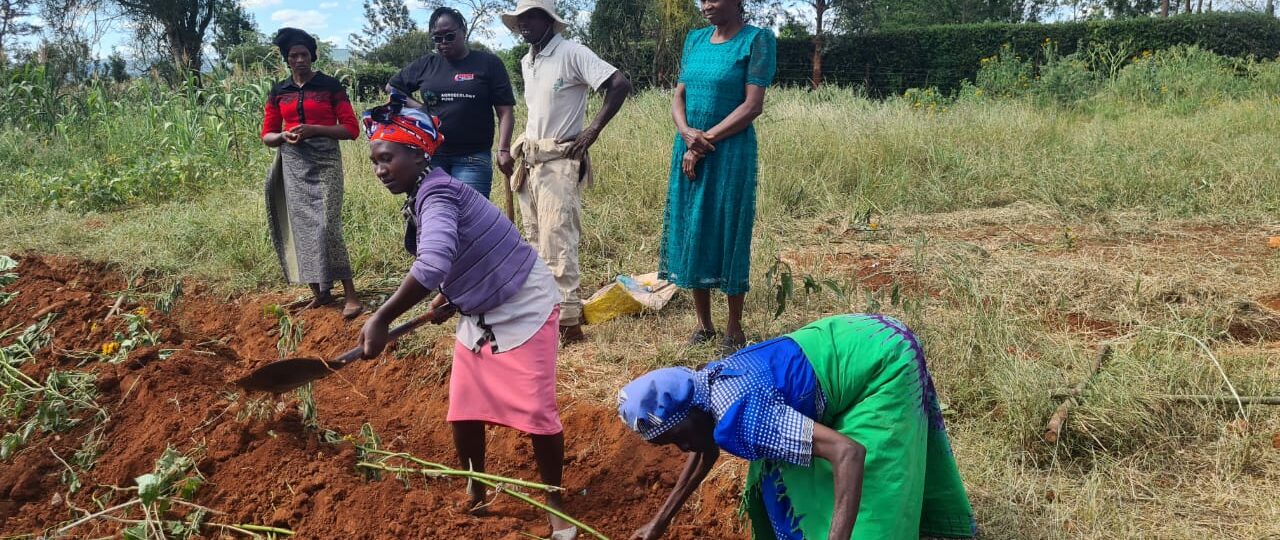Transnational corporations are companies often registered in the Global North with subsidiaries in the Global South. These corporations often take advantage of the existence of raw materials and cheap labour in the Global South, and the weak labour laws that characterise the developing nations.
The power wielded by the transnational corporations contribute to a lot of human rights violations.
Africa has had and continues to have negative impacts of transnational corporations’ footprints on labour, food, and the environment, just to name a few. Africa is considered the new frontier when it comes to business, which is evidenced by the many transnational corporations operating in the continent. How many transnational corporations have set up bases, for example, in the Democratic Republic of Congo to extract its minerals, and yet these minerals do not translate to better lives for the Congolese people? How many Congolese refugees are spread out in the world, unable to go back home because of conflicts?
Natural resources should bring prosperity and well being to citizens, but what we see in Africa is natural resources bringing suffering to citizens, thanks to the contribution of transnational corporations, the emergence of rebel groups, poor governance of existing natural resources and exclusion of citizens in decision making regarding its benefits. The discovery of new natural resources is further complicating the lives of citizens in different parts of Africa, take Cabo Delgado in Mozambique for example.
As reported by Human Rights Watch, the situation in Cabo Delgado is a humanitarian crisis because of the extraction of oil and gas leading to a humanitarian crisis, mass displacement and sexual and gender based violence targeting women and girls. With industrial agriculture and monoculture contribution to climate change, natural resources such as water become inaccessible. Transnationals cordon off access to natural resources such as rivers, which were freely operated by the communities.
When transnational corporations come to operate in a place, more often they make it privatised, which is followed by militarisation, often in the form of private security. Areas that previously never had any form of security, with the discovery of new natural resources, become a beehive of activity with community members often getting harassed. Local roads become privatised and ordinary people have to make a detour. Companies have been reported to release toxic substances in water, affecting the community’s sole sources of clean water. And more, when transnational corporations carry out mining, local communities end up becoming sick because of waste from mining areas being redirected to people’s sources of water. Access to clean and safe water, therefore, becomes a mirage.
Increasing violence
Transnational corporations have been responsible for violating human rights, making the work of environmental defenders more difficult. In extreme cases, defending the commons can cause death. The world is replete with examples of human rights defenders who have had to pay the ultimate price as they secure the rights of Mother Nature. In Honduras, Berta Cáceres was murdered for her activism against a dam in her indigenous territory. Other examples include activists from Mexico, the Philippines, and Brazil who have lost their lives. Closer from home, we have the case of South African anti-mining activist Mama Fikile Ntshangase, who was shot and died in her home. Another example is Joanna Stuchburry, who was killed for her work on environmental protection in Kenya. The environmental activist Nasako Besingi has suffered from harassment due to countering the operations of transnational corporations in his country, Cameroon. In other countries such as Uganda, as reported by GRAIN, local communities are getting evicted at gunpoint.
Sexual violence is rampant in transnational corporations, particularly in the agricultural sector, where women report being forced to exchange sex for either informal jobs or for promotions. Women who work in flower farms also complain of economic exploitation, sexual violence, overwork, and low pay, as evidenced by Kenya Human Rights Commission publication “Wilting Bloom’. Transnational corporations increase inequality across Africa. They are responsible for the exploitation and inhuman treatment of workers, despite many of them being signatories to the UN Conventions on Business and Human Rights.
Corporate power, seeds and food production
On food production, citizens of Africa are not protected from the ravages of transnational corporations. Various double standards are seen when pesticides that are banned in Europe find their way into Africa and are sold and consumed by people through food, as shows the African Centre for Biodiversity’s report. In the plantations, the aerial spraying of agrochemicals results in respiratory diseases and skin infections. With increased control of corporations on food systems and the environment, other aspects of the environment are becoming marketable, such as carbon markets.
Seed is the foundation of food. Without seed, there is no food. As Thomas Sankara aptly put it, who controls your food, controls you. Giant corporations have their tentacles on seeds, having discovered that when you control food, you control nations. The corporate capture of seeds obligate farmers, through legislation, to buy seeds sold by transnational corporations in agro vets. A look at various legislations in Africa on seeds and crops confirms the existence of punitive clauses that inhibit farmers from saving, sharing, and exchanging their seeds.
As Cidi Otieno of the Kenyan Peasants League once said, “shrinking civic space is not only about freedom of information or interference with the freedom of expression or the freedom of movement, it is when farmers cannot save their indigenous seeds because laws have been put in place to bar them from using their farm-saved seeds, it is when legislations are introduced to prohibit farmers from using manure from their cattle, goats, sheep, and poultry”. With seed production controlled by giant corporations, the seed is commodified, and its diversity — which is a key characteristic of indigenous seeds — is gradually being replaced by uniformity. Seeds that were freely exchanged and shared by our ancestors are becoming patented and it becomes an offence to use these seeds without paying royalties.
Behind the abnormal profit, the labour exploitation
The majority of transnational corporations prefer piece work to full employment. They often take advantage of weak legislation and availability of cheap labour, weak laws, as well as low bargaining among workers. In Africa, the high unemployment rate means that if one job is advertised, people will apply for it in thousands.
When transnational companies come to operate in Africa, the better paid positions are often set aside for expatriates, even thought there are adequate personnel in these countries who can take up these positions. To confirm this sorry state of sidelining of locals, there are reported cases of demonstrations, for example of the Turkana people, in Kenya’s northern frontier, over the British oil company, Tullow Oil.
Our work, our tools
Organisations such as Haki Nawiri Afrika carry out technical and political education on food justice to raise community consciousness on food production processes, promotion of agroecology and holding debates on food. These community dialogues dubbed tafakari forums aim at changing attitudes toward food, what we eat, where our food comes from, and how it is produced. These forums also incorporate policy advocacy and creating community awareness on policies and its impacts on communities. For example, how does the Seed Act affect smallholder farmers in Kenya? What is the impact of the Crops Act on farmers, and other existing legislations with potential negative impacts on farming practices such as outlawing the use of animal manure? Through agroecology and work with smallholder farmers, spaces are being created in the community for cross learning and sharing. Farmers are debating on age-old traditions and how these practices contributed to sustainable diets.

Elderly people are participating in community spaces to share their ancient experiences on food and diets and why eating processed food brings harm. The 91-year-old Veronica Kalondu, from Machakos, Kenya, is an example of inter-generational learning. She tells stories of the past on how when grazing she could only carry one meal which would last her till evening. She speaks of the nutritional value of indigenous food and how music was used as an energiser during farming. She speaks of lush green forests which existed and have now been cut down. She says that, in the past, the local community never depended on food aid because food was readily available, and today it is becoming hotter, food is scarce and her local community is often given food aid, locally known as molio. In Veronica’s view, nowadays food is no longer an art as it used to be, and children do not sit with their grandparents to hear stories of the past on food and nutrition. Parents are too busy trying to put food on the table leaving children to be fed on chips, noodles, and sausages instead of nutritious meals capable of making them strong.
On the other hand, agroecology acknowledges the importance of international learning and movement building, and challenges power structures on food production, such as matters of land rights, providing spaces for marginalised groups participate in decision-making.

Agroecology is about the co-creation of knowledge. It is a shift from the top-down approach where scholars extract information from farmers and make policy documents that gather dust on the shelf.
A people-centered resistance is very possible but only when communities are organised and have clear frame on what they want. Yes, the tentacles of transnational corporations are widespread globally, but it is worth celebrating the springs of resistance happening in different parts of Africa where the tentacles are being sliced off one at a time.
Leonida Odongo is a social justice activist dealing with issues around food and climate justice from Nairobi, Kenya. She is part of the World March of Women and the Shrinking Civic Spaces project.




